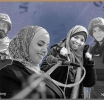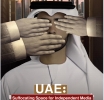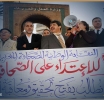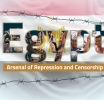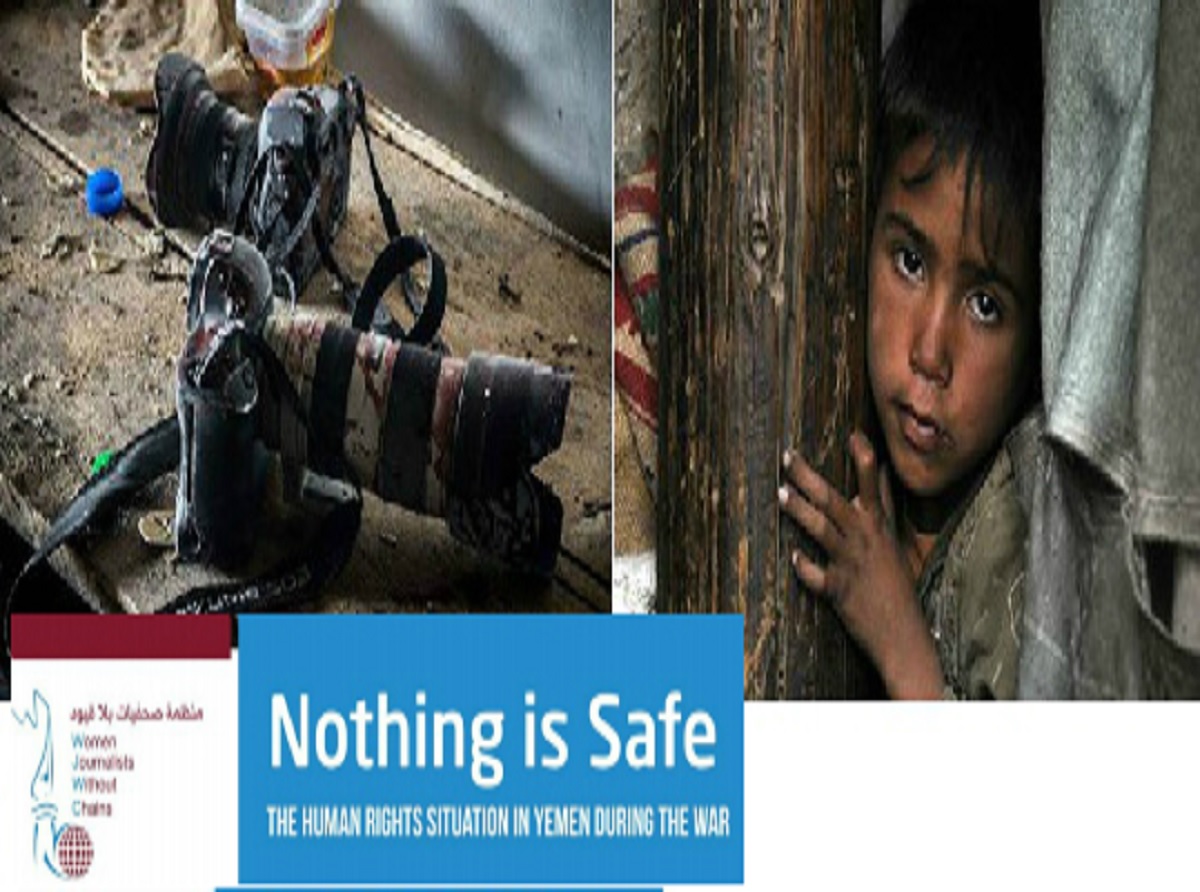Women Journalists Without Chains (WJWC) monitored 200 cases of press freedom violations in 2018
In 2018, Yemen's journalists and media workers faced a wide range of press freedom violations, with 200 cases being monitored by Women Journalists Without Chains (WJWC). These violations included kidnapping, detention, arrest, suspension, closure and storming of media institutions and journalists' homes, summons and trial, denial of treatment, incitement, defamation, murder, injury, assault, threat, website blocking, preventing the practice of a profession, torture, salary suspension, attempted murder, and violation of a travel ban.
The most common violations were actions such as kidnapping, arresting, detaining, and suspending, which accounted for 66 cases, or 33% of all violations. These actions were distributed among 23 cases of abduction, 26 cases of arrest, 17 cases of detention, and suspension. The number of murder cases amounted to 12, making up 6% of the total violations. The Houthi group was responsible for the highest number of violations at 102 offenses, or 51% of the total violations. The forces loyal to the legitimate government came in second with 42 violations, accounting for 21% of all offenses. The Aden-Lahj Security Belt forces and Hadhrami Elite ones were responsible for 31 violations, making up 15% of the total violations. Unknown armed groups committed 11 violations, adding up to 6% of all offenses. The Arab coalition troops committed 8 violations, representing 4% of the total violations, while media outlets were responsible for 6 violations, making up 3% of all offenses.
In addition to the above violations, 15 cases involved the denial of treatment, 13 cases were related to incitement and defamation, 10 cases involved injury, assault, threat, or website blocking, 5 cases were related to preventing the practice of a profession, 5 cases involved torture, 4 cases involved salary suspension, one attempted murder case, and one violation of a travel ban.
The situation in Yemen is concerning for journalists and media workers, as they face a high risk of being targeted or assaulted while reporting on the country's armed conflicts. In this regard, Women Journalists Without Chains stressed the importance of protecting journalists and media employees who report on armed conflicts against any form of targeting or assault, in adherence to international humanitarian law. The law confers the same safeguarding to civilian journalists as it does to civilians, as long as they do not take part directly in hostile activities.
To address this issue, the organization urged media and journalism institutions to coach their staff on professional safety, particularly correspondents stationed in conflict zones, and to equip them with essential protective measures. These measures include providing training and support to journalists and media workers, as well as advocating for their rights and pressing for accountability for those who commit violations.
In conclusion, the 2018 press freedom report by Women Journalists Without Chains highlights the dangers faced by journalists and media workers in Yemen, with a significant number of violations being committed by various groups. It is crucial that the international community takes action to protect the safety of journalists and media workers in Yemen and hold those responsible for violations accountable. Press freedom is essential to ensure that important issues are reported on and those in power are held accountable.

 En
En  Ar
Ar 
